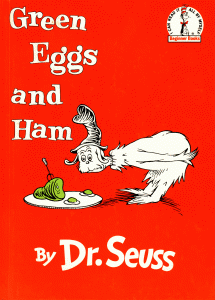May I predict, with perverse pleasure, the coming split of both the Republican and Democratic parties.

Random House, image from University of Illinois
I am not referring to the politics as usual intra- and interparty squabbles. The GOP is as strong as ever, but it’s not without the occasional flare. Mid-month and again this week it was over the pronouncements of Sen. Ted Cruz, Republican of Texas, a case of who’s more conservative.
These particular Cruz missiles likely are to be wispy memories in 13 months. But the overall point this fall is whether this man is a loner or leader of a faction.
That would be the Tea Party. Today, Gallup released a survey report indicating declining support for this far right coalition. Which could change on a Lincoln penny.
For all the posturing there is this fact: The executive branch drafted what would become the Patient Protection and Affordable Care Act of 2009, majorities of both houses of Congress approved it in democratically conducted votes and, last, the Supreme Court found nearly the entire law constitutional. The executive branch since has moved to implement the federal law along with all 50 “several states.”
Democrats as usual face at least one similar split. The simultaneous popularity and vulnerability of Hillary Rodham Clinton makes the party nervous. Still, the people’s party historically is fractious. “I am not a member of any organized party — I am a Democrat,” said Will Rogers, 1879-1935.
There’s a deeper split going on, and I want to point it out without penning an encyclopedic proof-text.
Domestically, the Edward Snowden release of National Security Agency documents — not of secret-secrets but more of how post-9/11 policies have come to be implemented — has created parallel rifts in the parties.
One might think liberals would herald “openness,” but progressives worry about America becoming vulnerable. One might think conservatives would value a weakening of the federal government, but some right-wingers value privacy for citizens, a constitutionally protected civil liberty. And on and on.
Matters such as this could confound the November 2014 elections.
In foreign policy, who’s an isolationist and who’s an interventionist? In recent weeks this debate has concerned Syria and its civil war. The violence has waxed and waned until a documented gassing of civilians has gelled into treaty discussions as well.
Caring, well-informed friends can’t figure out how to stop another holocaust. Should Washington interfere, at the seemingly likely cost of innocent Syrian (and American) lives? Should it instead let the dictator Assad continue to quash Syrian rebels any way he chooses? Of the various middle grounds, such as highly targeted drone strikes, are they too small in focus to do any good?
Back in early July, foreign policy debate concerned the military coup that ousted elected (and with Western supervision) President Mohamed Morsi. Yet Morsi is a leader of Egypt’s fundamentalist Muslim Brotherhood (which would seem to have no auxiliary Muslim Sisterhood), which by Western lights is not pro-democracy?
Where can Egypt go from here? This cradle of the Arab Spring now seems a mockery of the idealism that thrilled so many of us.
Matters such as this could confound the November 2014 elections.
I think the NSA has deeper implications than national health care, until it’s had a couple of years for its kinks to be ironed out. The Arab clashes have longer pull than, say, China trade, which continues to be fairly well controlled.
My ego wants my hunches on record. A set of reflections like this won’t really do anyone much intrinsic good, especially me. The most I can get out of this might be an “I told you so,” and those have been satisfying since childhood. Nyah nyah nyah!
While I’m at it, I don’t believe Hillary Clinton will run for president in 2016. Both she and Vice President Joe Biden will be just a little too old. Outside of Ronald Reagan, recent first-term presidents have started lots younger than 70.
I don’t really see fully split Republicans and Democrats, because it’s not quite happened before. These 20-teen years are not worse than any other strife-filled period. Certainly not the Good Old Days.
